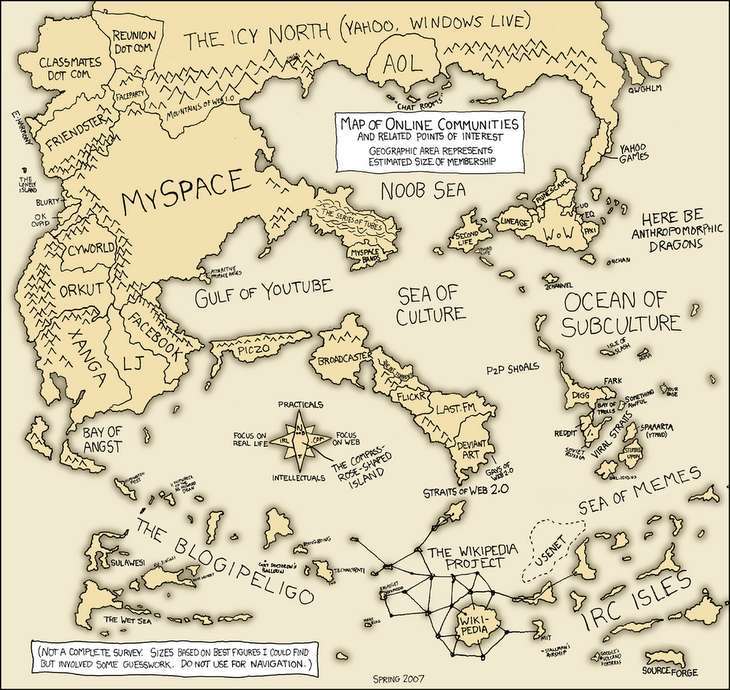-Though academic institutions have been working to protect student identities, their work is increasingly being undermined by social networking communities (SNCs).
-The goals of this study were twofold: obtaining quantitative data about SNC participation on college campuses, and analyzing member attitudes pertaining to SNC participation and online identity sharing. This data was gathered from the perspective of an outsider to these communities.
-A random survey of 200 students (38 of whom responded) inquired about the specifics of their involvement in SNCs as well as their feelings regarding online identity sharing. The researcher then created a disclosure matrix for each participant by examining the data made available in their SNC profiles.
-Limitations: Small sample size, internet survey may be biased toward the tech-savvy, outsider status, lexical differences in coding identity elements of the SNCs (favorite movies, sexual orientation, academic status, etc;).
Findings
-71% involvement in SNCs: 90% of undergrads, 44% of grads.
-Most popular was Facebook (90% of undergrads), followed by Friendster and MySpace.
-Though participants expressed doubt that their identity information was protected online (2.66 on a 5-point Likert scale), they were nevertheless okay with friends accessing this information (4.55), but markedly less so with strangers (3.15).
-Information of particular interest: location, sexual orientation, political status
-Urges discussion of new identity disclosure threats posed by SNCs.
---
The very small sample size of this study makes it almost entirely worthless to review, but it is worth noting that academic institutions are working to protect the identities of their students. In another vein, the enormous discrepency between SNC participation by undergrads and that of graduate students suggest that the undergaduate community may possess certain qualities or needs that SNCs fulfill, such as maintaining high school ties.
Seeing as identity disclosure would seem to be a pertinent issue, it would be interesting to reassess users' feelings on the matter now that SNCs have become both mainstream and problematized by media discourse. How is "stalking" defined (it is a commonly used term in Facebook discourse)? What sort of activities and degree of involvement are deemed acceptable by today's norms?
Subscribe to:
Post Comments (Atom)





1 comment:
Could not find a suitable section so I written here, how to become a moderator for your forum, that need for this?
Post a Comment